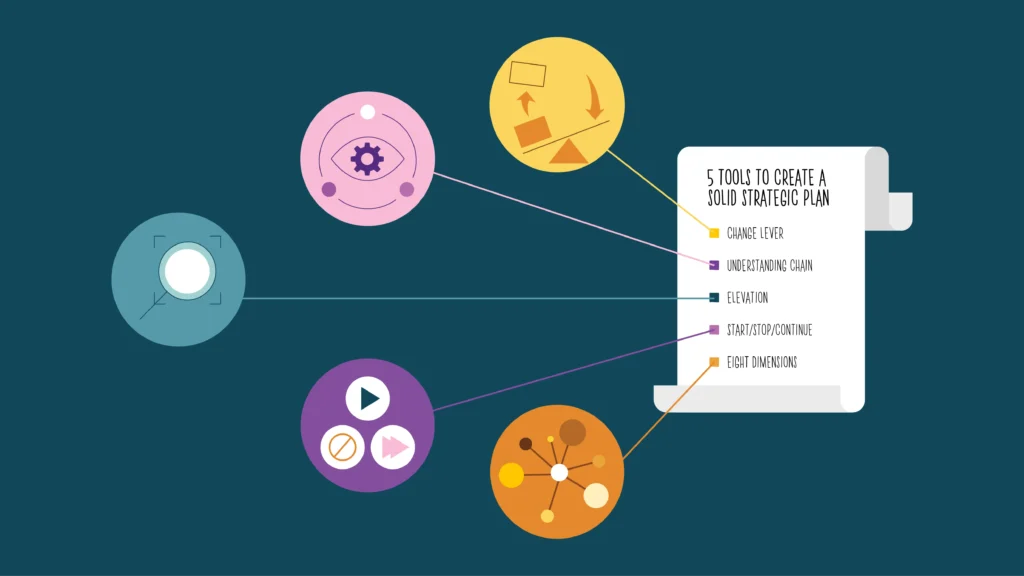Hey there, fellow marketers! If you’re like me, you’ve probably spent countless hours trying to figure out how to make the most of your organization’s digital marketing budget. Let’s face it, in today’s fast-paced and highly competitive digital landscape, budget optimization is crucial. It’s not just about how much you spend, but how wisely you spend it.
How To Optimize Your Organizations Digital Marketing Budget? Do you have any idea about it? If not, then don’t worry. In this article, we’ll discuss about it. And I’m going to share some battle-tested strategies on how to optimize your organization’s digital marketing budget. Whether you’re a small startup or a large corporation, these tips can help you make the most of every marketing dollar.
How To Optimize Your Organizations Digital Marketing Budget?
Below is our list of how to optimize your organizations digital marketing budget.- So, continue reading this article to know more about it.
Start with a Solid Strategy

The foundation of any successful marketing campaign is a well-thought-out strategy. Without a clear plan in place, you’re likely to waste your budget on scattered, ineffective efforts. Start by defining your marketing goals, target audience, and the channels you want to utilize.
Consider your long-term and short-term objectives. Do you want to increase brand awareness, drive sales, or generate leads? Knowing your goals will help you allocate your budget more effectively.
Conduct a Comprehensive Audit

Before diving into any marketing campaign, it’s crucial to assess your current digital marketing efforts. What’s working, what’s not, and where can you make improvements? Take a close look at your past campaigns, website performance, and social media engagement.
By conducting a comprehensive audit, you’ll be able to identify areas that need optimization. This could mean reallocating the budget from underperforming channels to those that are delivering results.
Prioritize High-ROI Channels

In the digital marketing world, not all channels are created equal. Some will naturally provide a better return on investment (ROI) than others. For instance, pay-per-click (PPC) advertising often delivers quick results, while content marketing might take longer but has a sustainable impact.
Assess the performance of each channel in your marketing mix. Look at key performance indicators (KPIs) such as conversion rates, click-through rates, and cost per acquisition. Focus your budget on the channels that are driving the highest ROI.
Implement A/B Testing

A/B testing is a marketer’s best friend. It allows you to compare two versions of a marketing asset (like an email, landing page, or ad) to see which one performs better. By constantly testing and optimizing your digital assets, you can stretch your budget further.
For example, you might run A/B tests on your email subject lines to see which one generates a higher open rate. Over time, this can lead to more effective email campaigns without increasing your email marketing budget.
Embrace Data Analytics

Data is your secret weapon in the world of digital marketing. It’s not enough to just set up campaigns and hope for the best. You need to monitor and analyze your data regularly to make informed decisions.
Tools like Google Analytics and marketing automation platforms provide invaluable insights into your audience’s behaviour. Use these tools to track website traffic, conversion rates, and user demographics. By understanding your audience better, you can optimize your campaigns for maximum impact.
Allocate Resources Based on Performance

This one’s a no-brainer, but it’s often overlooked. If a specific campaign or channel consistently performs well, consider allocating more budget to it. Conversely, if something is underperforming, don’t hesitate to reallocate that budget elsewhere.
Regularly review your campaigns and make adjustments based on the data. Your marketing budget should be flexible, allowing you to pivot and invest more in what’s working and less in what’s not.
Invest in Content Marketing

Content is king, and it’s a relatively cost-effective way to reach and engage your target audience. Well-crafted content can drive organic traffic, increase brand authority, and foster trust with your customers.
Consider investing in quality content creation, such as blog posts, videos, and infographics. Over time, this can reduce your reliance on paid advertising, which can be a budget saver.
Leverage Social Media Advertising

Social media platforms are a goldmine for reaching your target audience. The key is to use these platforms wisely. Run highly targeted social media ad campaigns to reach the right people at the right time.
Platforms like Facebook, Instagram, and LinkedIn offer sophisticated targeting options. Use them to your advantage and ensure that your budget is spent on the most relevant audience segments.
Consider Influencer Marketing

Influencer marketing can be a powerful strategy, particularly for businesses in consumer-oriented industries. Collaborating with influencers who align with your brand can help you reach a wider and more engaged audience.
The key to influencer marketing is to choose influencers who genuinely resonate with your product or service. Also, ensure that their followers match your target demographics. While it may require a portion of your budget, the return can be significant.
Don’t Neglect Email Marketing

Email marketing remains one of the most effective ways to nurture leads and engage with your existing customers. It’s also cost-effective compared to some other marketing channels. With the right strategy and segmentation, you can achieve impressive results without a massive budget.
Segment your email list and send personalized content that resonates with different customer segments. This can lead to higher open rates, click-through rates, and conversions.
Monitor Competitors

Keeping an eye on your competitors is a great way to optimize your marketing budget. If you notice them getting good results from a particular channel or campaign, it’s worth considering a similar approach.
Remember, you don’t need to reinvent the wheel. You can learn from your competitors’ successes and adapt them to your unique brand and audience.
Negotiate with Vendors

When you’re dealing with various marketing tools and platforms, don’t hesitate to negotiate. Many vendors are open to negotiation, especially if you’re a long-term customer or if you’re spending a substantial amount of money with them.
Consider negotiating on pricing, additional features, or even extended trial periods. Saving a few bucks here and there can add up for a year.
Set Realistic Expectations

While we all dream of marketing campaigns that go viral and generate massive returns, it’s essential to set realistic expectations. Unrealistic expectations can lead to overspending and disappointment.
Set clear, achievable goals based on your budget and resources. Celebrate the small wins along the way, and remember that steady, consistent growth is often more sustainable than chasing short-term highs.
Review and Adapt Regularly

Optimizing your marketing budget is an ongoing process. Regularly review your strategies and adjust them as needed. The digital landscape is constantly evolving, and what works today may not work as well tomorrow.
Stay up-to-date with industry trends and be open to trying new approaches. Flexibility is the key to staying ahead in the digital marketing game.
Conclusion
Optimizing your organization’s digital marketing budget is all about making every marketing dollar count. By starting with a solid strategy, conducting regular audits, prioritizing high-ROI channels, and embracing data analytics, you can stretch your budget further than you ever thought possible.
Remember that digital marketing is not set in stone. It’s a dynamic field where adaptation and innovation are key. Keep experimenting, learning, and evolving, and your budget will become a powerful tool for growing your brand and reaching your marketing goals.








